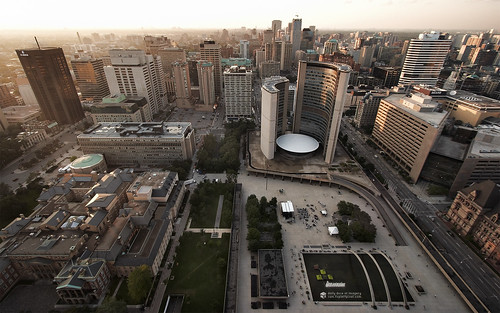
Yesterday, the National Post ran a long overdue story on the lobbyist registry — or what’s left of the registry, anyways. Unfortunately, the picture it paints is predictably bleak. So bleak that Lobbyist Registrar Marilyn Abraham ought to resign from her post immediately.
Calling for Abraham’s resignation has nothing to do with her performance. From all accounts, Abraham is a first rate civil servant. However, City Council has put Abraham and the entire registry in a position to fail.
In February, City Council voted to adopt the lobbyist registry policy framework. This allowed a lobbyist registrar to be hired and for the specifics of the registry to be worked out over the proceeding months, including a budget to be presented to Council.
Fast forward to July: a day after putting the City’s finances into turmoil by deferring a decision on new tax measures, Council considered Abraham’s requested $700,000 budget (whittled down from an initial request of $1 million.) In an unwise knee-jerk reaction to the deferral, Council only approved a $360,000 budget (among those who supported the reduced budget were the Transparency Troopers.)
But Abraham made it abundantly clear that the job she was being asked to do could not be done on $360,000. Turns out she was right. From the National Post article:
Brad Ross, a spokesman for the city, said the Web site for the registry is ready to go, but the reduced budget means the registrar’s office does not have the staff to process the 4,000 to 5,000 registration applications expected from lobbyists.
Although Toronto would be losing a capable administrator, the fallout of Abraham’s resignation should force City Council to fix the lobbyist registry. That would be an honourable legacy for any bureaucrat.
A note about costs:
Even if a functional registry costs the City an extra $1 million each year, that’s equal to one sixtieth the cost of the MFP scandal, not including the millions spent on the inquiry. Though if Council insisted that the money for an adequately funded lobbyist registry come from a specific source, I would suggest amalgamating the newly created ombudsman with the already existing integrity commissioner. The difference between the two roles, as I understand it, is that the ombudsman is intended to handle complaints about City services from the public while the integrity commissioner takes complaints from the public and members of council about members of council. It doesn’t seem unreasonable to have these two roles combined, especially if that makes room for a lobbyist registry.
photo by Sam Javanrouh


3 comments
I don’t understand why they couldn’t approved the costs of the lobbyist registry at the same time that they approved the registry itself. By approving the budget later, it seems that they left the door opened for the registry to be shut down.
So long as councilors keep their self-appointed raises and perks, the rest of the city can suffer instead.
Brace yourselves – I’m actually going to say John Barber made sense in the Globe. Okay, that felt weird.
He points out that the “integrity commissioner” is a waste of space and the City’s information policy is incredibly paranoid (as anyone who reads illegalsigns.ca knows). The Auditor has gone quiet too. Now obviously the City isn’t as much of a free for all as under Lastman but TEDCO is still marching to its own drum…
http://www.theglobeandmail.com/servlet/story/LAC.20070804.BARBER04/TPStory/TPEntertainment/
Information, integrity, audit and lobbying should be integrated in such a way that the lobbying component of the CoT Act is respected – hopefully creating a “cluster” of public defence workers will protect one facet from attack by vested interests and information sharing between them – possibly including shared personnel for cost saving – might lead to bad practices being exposed more quickly.